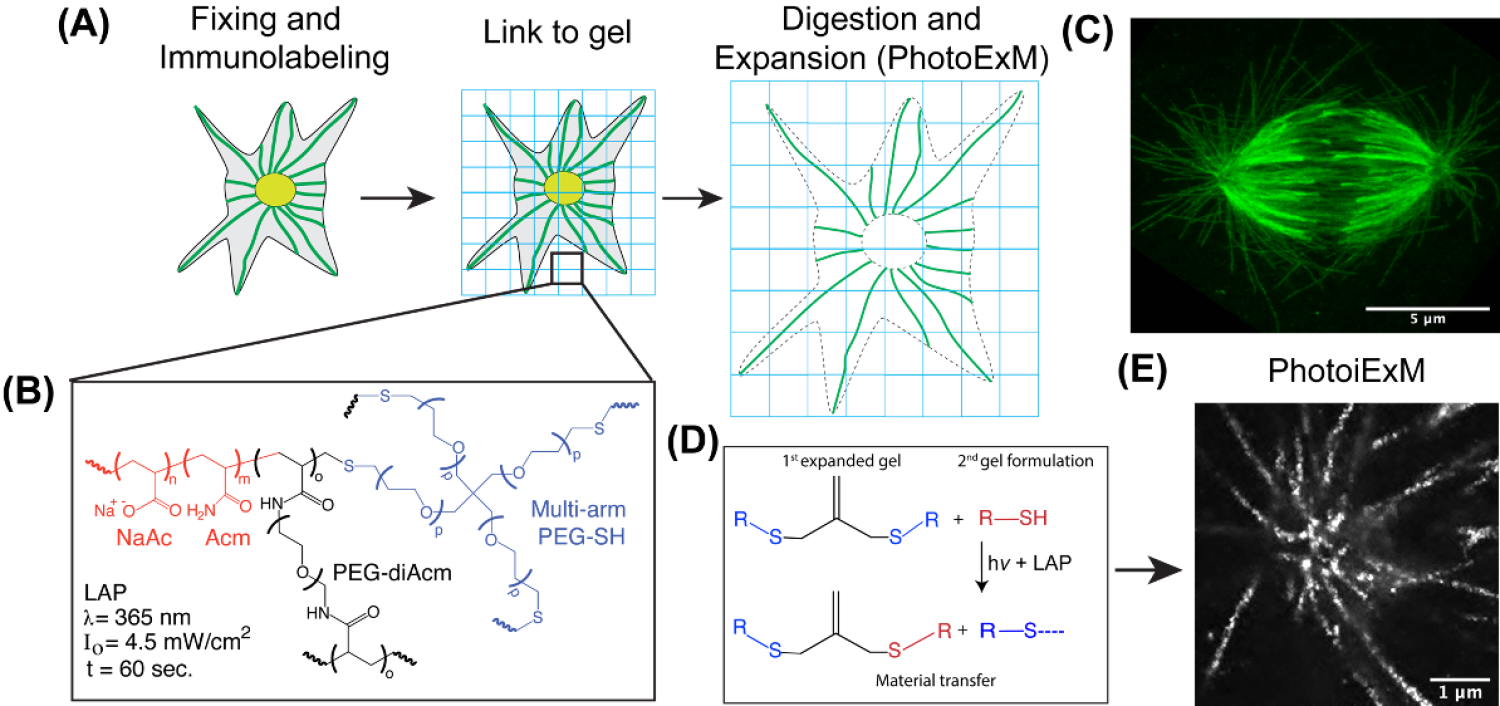Swellable Photopolymerized Hydrogels for Expansion Microscopy

Background
Researchers at CU Boulder, led by Dr. Kemal Arda Gunay, have developed a novel method for optical imaging of biological samples. Optical imaging of biological samples is essential for the advancement of biology and medicine. However, conventional optical imaging techniques are limited by the diffraction of light, which creates a need for hydrogel formulations that enable precise control over the kinetics and timing of fabrication, as well as control of the expansion factor of the resulting hydrogels. Expansion microscopy enables super-resolution imaging of biological specimens while using a conventional confocal microscope. This invention, termed PhotoExM, provides novel, swellable photopolymerized hydrogels for expansion microscopy.
Technology
The technology behind PhotoExM relies on i) homogenous permeation of the photopolymerizable and swellable hydrogel formulation into the biomaterial, ii) photo-polymerizing the hydrogel in situ, while simultaneously or sequentially degrading the biomaterial. This polymerization method enables an extremely rapid living polymerization with minimal oxygen inhibition and is compatible with relatively thick tissue samples.
Figure 2 shows the (A) expansion factor and the (B) shear moduli of these exemplary formulations. FIG> 2B shows that the hydrogels prepared using 8-arm, 10000 g/mol PEG-SH has improved mechanical properties compared to when 4-arm, 5000 g/mol PEG-SH was used.
Advantages
- Precise control over timing, kinetics, and location of polymerization
- High-throughput hydrogel fabrication at ambient conditions
- Process is compatible with any degradable biomaterial
Applications
This has potential applications for:
- Pathology screening
- Biological hypothesis testing
- Subcellular RNA localization
- Interrogation of tissue samples with single cell/molecule precision
What's Next?
This advanced technology is available for exclusive or non-exclusive licensing.
Nicole Forsberg: nicole.forsberg@colorado.edu
The Newsroom
For marketing and communication inquiries or news tips, contact Daniel Leonard, senior marketing and communications specialist for Venture Partners at CU Boulder.
For media inquiries, please visit colorado.edu/news/formedia.


